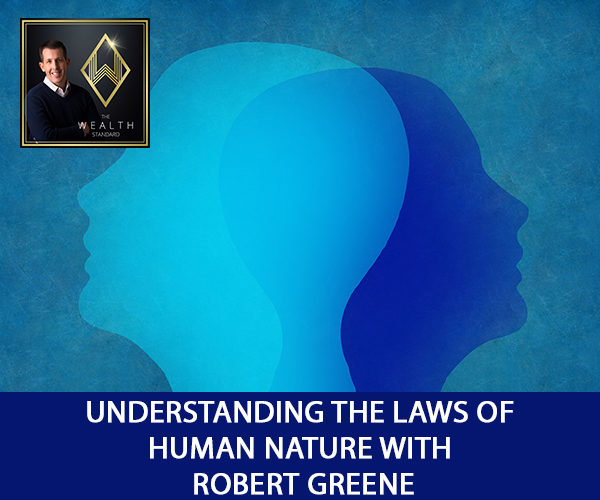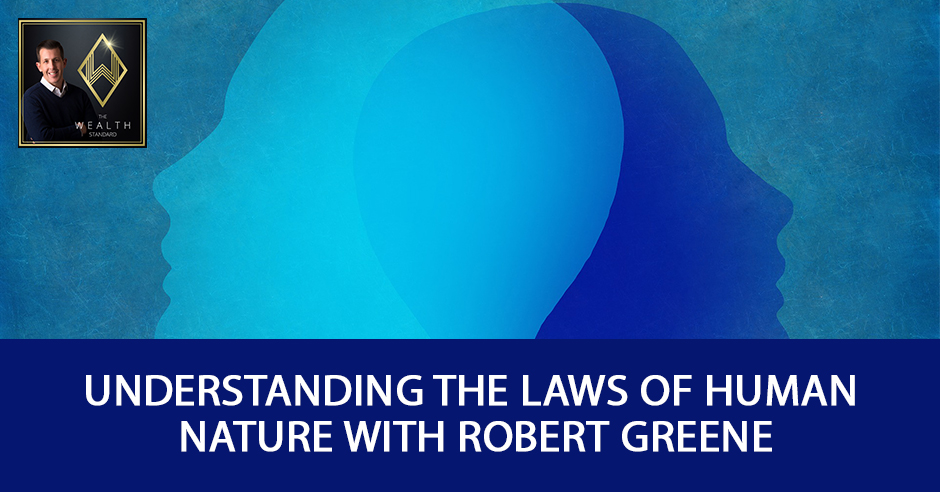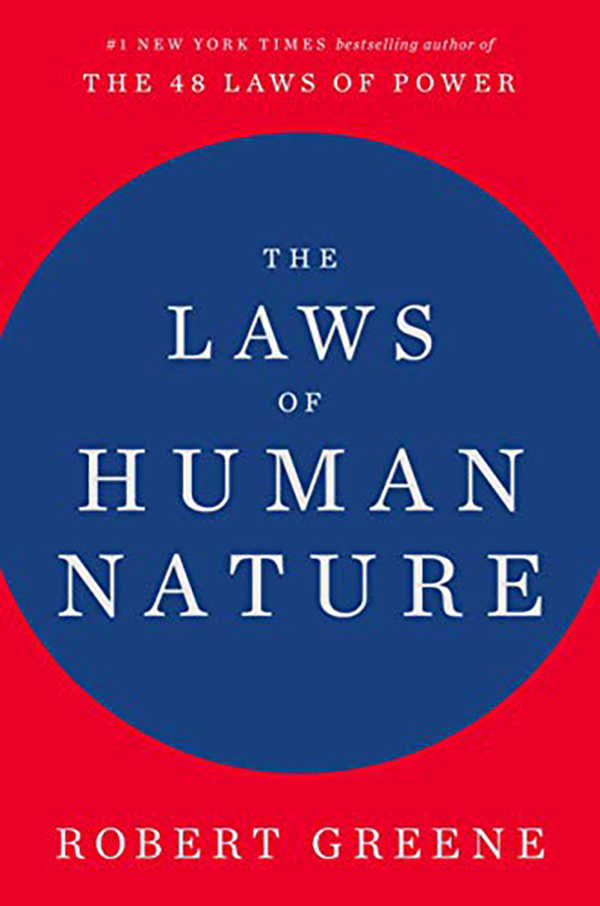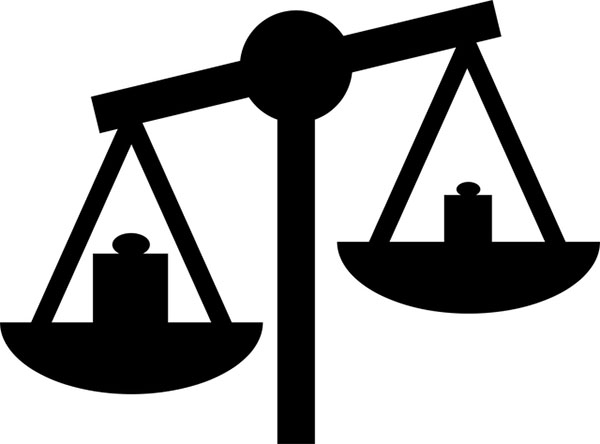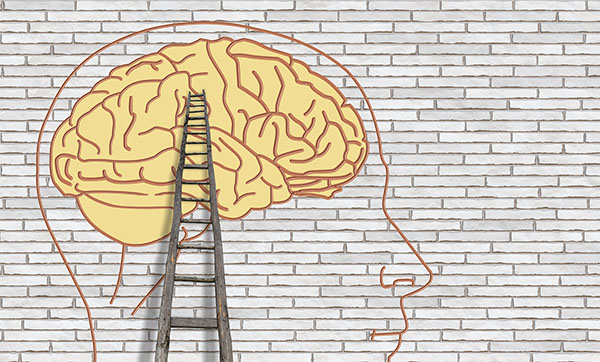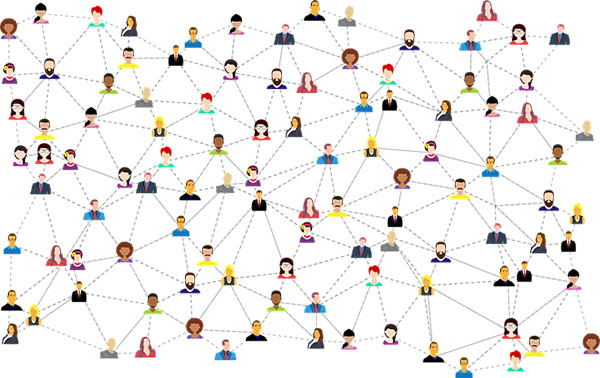Understanding The Laws Of Human Nature With Robert Greene – A Replay
Podcast: Play in new window | Download
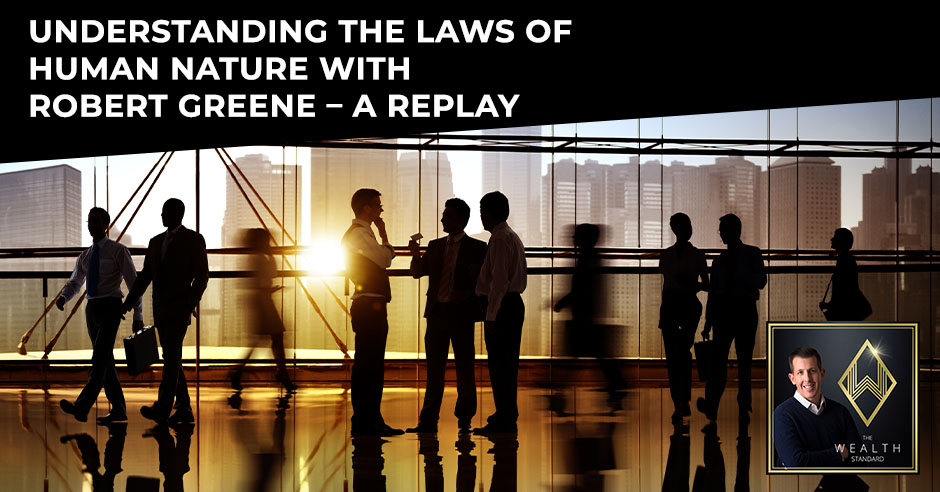
If we get to know the laws of human nature, there is nothing stopping us from becoming the best in whatever we do. Patrick Donohoe has been mulling over this thought following a profound conversation with his 14-year old daughter about how we perceive ourselves and other people. In this episode, he revisits last year’s episode with bestselling author Robert Greene, where they talk about his book, The Laws of Human Nature. The interview was a deep and insightful take on how we manage other people’s behavior and, more importantly, our own behavior patterns, making it one of Patrick’s favorite episodes in the podcast. The value from this interview never gets old, so sit back, listen and learn.
—
Watch the episode here:
Listen to the podcast here:
Understanding The Laws Of Human Nature With Robert Greene – A Replay
Thank you for tuning in. It’s going to be a solo episode and I’m going to be brief and then replay one of my most favorite interviews of all time with a man named Robert Greene. It is talking about the book he had released at the time called The Laws of Human Nature, which will stir you deeply so get that book. First, if you have not visited the Resources section of the website, we have some free courses on there. One specifically talks about the entrepreneur in a way in which an entrepreneur can set up their financial life. One talks about the wealth maximization account and another, which is specifically for real estate investors. Go check that out. They’re free to you.
Also, the book that I wrote called Heads I Win, Tails You Lose: A Financial Strategy to Reignite the American Dream. Go pick it up for free. It’s a PDF version. It also has an audiobook attachment to it. You can go on Audible and pay for it. You can go to Amazon and pay for the hard copy. You can go to Kindle and pay for the eBook there. This is the way in which you can get introduced to it for free. There are also other resources on there that I believe will be helpful to you. There’s been something I’ve been thinking about a lot, and this is why I want to replay the interview I had with Robert Greene.
I’ve mentioned on the show before a profound conversation I had with my daughter and she made the comment. It was an observation that she had. She said, “Dad, do you realize we’ll never see ourselves? We’ll never physically experience ourselves.” I thought that was insightful, especially for a young person. That’s my middle daughter and I continued to think about that. I’ve made some connections that I’d like to share with you. First off, she’s right. I don’t think we’ll ever physically experience ourselves with all of our senses. We can see ourselves in the mirror, like a reflection. We can touch ourselves, hear ourselves speak, but it’s a little bit different because when you hear a recording of yourself, especially if you’ve never heard one before, it sounds different.
It’s something that I find interesting as far as how we experience life, all the senses that we have, and how we take in those senses. The light, the sounds are all energy. That’s all processed in our mind and we make sense of it. The connection I made is that you go to old movies and when a person sees themselves in a reflection or a mirror. Maybe it’s an old movie, they don’t have mirrors around and somebody sees themselves for the first time. There’s a connection we make with the character about that experience of, in a sense, experiencing themselves.
I also look at why people are afraid of public speaking or having a picture taken. My sister-in-law hates her picture being taken for whatever reason. I’ve looked at what anxieties people have, and it’s not speaking in front of people. It’s more of the fear of what response you’re going to get because we live vicariously through the opinions of others. What do they say about us? What do they think about us? What do they validate? What do they confirm on the contrary? What do they criticize? What do they don’t like? You can have 100 complements and get all of those wiped out with one criticism.
I look at it as our innate desire to want to understand ourselves, and we do that through others. I look at our society and there are lots of signals going on. We identify ourselves without a person giving us their perspective and signaling is the cars we drive, where we live, the clothes we wear, where we vacation. There’s a lot of physical manifestation that it represents. Look at cars. If somebody drives a Hyundai, an old car, a truck, or a fancy sports car, those are all signals and we’ve used those to make a judgment about somebody else. I’m not saying that this is all good or bad. I’m saying if this is the case, then being aware of it is going to help us get closer to what we want.
I don’t think we want that. We don’t want compliments. We don’t want people to necessarily say certain things about us. We want to know that we have value in the world. That’s where I look at one of the things that I talk about in my book, which is one pillar of financial independence is the discovery of meaningful work and doing that as a full-time profession or career. Meaningful work, I believe is you discovering something that’s a value inside of you and providing that to somebody else.

Laws Of Human Nature: We don’t want compliments. We want to know that we have value in the world.
That demonstration gives a sense of value validation, meaning that it’s difficult to match based on having some physical thing that represents your value. I look at that as one of those things we discover over the course of time. If somebody can discover that about themselves, it clears the path to a level of financial independence. I would say in any investment, dollar amount, bank account balance could give you. Those things are important having liquidity, reserves as well as investments that are passive in nature and provide you income so you can exchange that amount of money for the life that you want to live. In the end, if you miss that third pillar, which is meaningful work, contributing who you are to society in some form or another and continue to grow that, then the level of independence and level of fulfillment is simply, in my opinion, not going to be there.
I look at Robert Greene and what he’s written. He has a number of books and they’re all thick. The Laws of Human Nature dives into how people are, how they act, what they think, what they believe. In the end, our life is short. Our experience of life is interesting, whereas I mentioned in the episodes, it’s paradoxical. The closer we get to understanding ourselves and understanding how to reach those levels, those states of fulfillment and feelings of fulfillment, the more wealthy we are. Wealth is to get a person to that state, or at least that’s what we’ve been conditioned to believe.
I believe you can get there in other ways. Money is a part of it. It’s a fast way to get there, but once you have the money, the financial wealth and material things, it does not create the wealth that we want. Read the interview with Robert Greene with that context. I hope you find value in that. Thanks for reading and paying attention and trying to learn about the episodes. I know it’s been unique and me going off. It’s to help me understand what I’m thinking and create some breakthrough moments for me. I hope you find it valuable. One of the things that I will say in relation to meaningful work is the idea of creativity.
This for me is fulfilling because I’m able to speak and express myself and, in the process of doing that, learn more about what I believe, what I think and what I want. Our society is also demonstrating that. They also want to know yet it may not be as channeled and focused as it can be. You see that in the diatribes, on social media where people go off and criticize people and make comments about political things and write these huge novels in relation to something that may not be that significant to anybody else. The act of doing that is this desire for us to express the uniqueness to discover who we are at a deeper level. That creativity, once you can connect it and channel it in a way where it benefits and helps others, there’s an exchange for that. That’s some of the most rewarding activities and experiences ever. I’m off my pedestal. Thank you for reading. Enjoy this interview with Mr. Robert Greene. That’s it for now. Take care and see you on our next episode.
—
Thanks for tuning in to this episode and our season around the topic of entrepreneurship. My guest is none other than Robert Greene. I’m fortunate to get to interview and learn from some fascinating individuals and Robert Greene is right there at the top. He boasts six New York Times number one bestsellers. Those titles are The 48 Laws of Power, The Art of Seduction, Mastery, The 33 Strategies of War, and The 50th Law who he wrote with the rapper 50 Cent. He’s also the author of the book, The Laws of Human Nature, which we’re going to be discussing. A successful entrepreneur doesn’t exist without other people. I don’t believe a fulfilling life is possible without other people.
The nature of a human being, our drives, instincts, emotions, and behavior have been studied by millions, yet humanity continues to be ripe with the dark side, war, murder, abuse, bullying, infidelity, divorce, bankruptcy, corruption, depression, anxiety, and the list goes on. Even though we have made incredible strides in an array of areas that snare still remains elusive. What does that have to do with you and what do that have to do with entrepreneurship? It’s no secret that a lot of businesses fail. I’m sure that’s not the initial intention and the amount is much more than those that succeed. Those ideas without execution are worthless and that execution without other people, other humans assuming a successful investment is a lottery ticket. Get this book, The laws of Human Nature, by Robert Greene. Let’s go ahead and welcome my special guest, Robert Greene.
—
It is truly an honor to have Robert on the show. Thank you so much for joining us. This is one of those amazing interviews that I’ll benefit from and be excited about it.
You need to master people as a skill. If you offend people left, right and center, you’ll never get funded. Click To TweetThanks, Patrick. I hope I can live up to the hype.
You’ve made such a difference in the lives of my as well those that have influenced me. I found your book, The Laws of Human Nature, fascinating. You’ve written so much. This is your sixth book. The first thing that came to my mind, as far as what to ask you, is the circumstances that inspired you to write the book and some of the elements that perhaps weren’t in the previous books that you wrote. What was the backstory to that?
There are several channels that go into what influenced the book. In Mastery, I had a chapter, Chapter 4, on social intelligence. The basic idea was to, as a book, teach you to have to become a master in whatever field you’re in. You’re not going to be graded, whatever you do unless you also know how to get along with people because we’re a social animal. You could be technically brilliant, a consummate computer hacker, but if you offend people left, right and center, you’ll never get funded, etc. I wanted this to be an element of what you need to master. You need to master people as a skill. I got a lot of feedback from readers from that. They enjoyed that chapter, but the main thing was, “Robert, it wasn’t enough. It was juicy, it was tantalizing, but we need more.” I thought, “Maybe I’ll respond to my readers and I will expand this into an entire book.”
There were other things going on as well. My first book came out many years ago, The 48 Laws of Power. Since then, I’ve done a lot of consulting with powerful people in different fields. I’ve had a lot of experiences in helping people with their problems. I’ve seen these themes in which people don’t understand the basic elements of human psychology and it leads to all problems. They hire the exact worst employee based on their resume, charm, and looks. All problems ensue. They partner with the worst business partner who ends up being aggressive that they push them out or they get involved in intimate relationship with someone who ruins their life. Why are people bad at these choices? They’re not good at understanding people. They’re not paying deep enough attention. They’re only looking at the surfaces.
Based on Mastery and based on my experience with consulting, I felt a deep need out there to help people understand certain basics about human psychology and what governs human behavior. There are patterns that I’ve seen in my own life and in the people I deal with and these patterns are what I ended up calling human nature. Unconscious forces that govern a lot of what we do that we’re not even aware of. I want to make you the reader of these forces inside you so you can break your own bad habits. I want you to be able to see them in other people so you can understand others on a much higher level and be able to influence them instead of always being frustrated by the people you’re dealing with.
It’s one thing that I associate with what most people can because we tend to look at the world and assume other people look at the world the same way. Getting back to the premise of the book, when a person sits down to read it, what have you seen as the outcome, the result of somebody who has read it, and where it’s made an impact?
I haven’t gotten a lot of feedback, but I have been getting some. One of the main themes, which is not too surprising, but it wasn’t exactly what I expected is that it’s making people think a lot about themselves. They’re reading the book and they’re reading about narcissism, or they’re reading about envy or aggression. They’re going, “I have some of these traits in myself. I’m not as great as I thought I was. I thought that I was this nice person who’s always considered and thinking about other people. Maybe that’s not true. Maybe I need to reconsider some of my flaws, dark side and shadow sides,” as I call it.
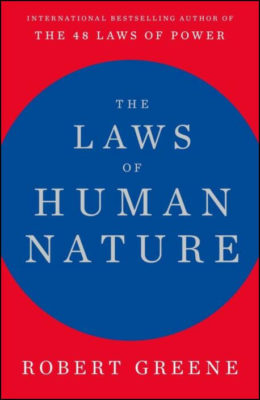
The Laws Of Human Nature
One of the main effects is it’s making people reassess who they are and rethink some of their own behavior patterns. I went through that in writing the book. I’m writing a chapter on narcissism and I’m going, “You’re more narcissistic than you think.” It’s an eye-opener as I was seeing traits that I was writing about in myself. The number one thing that stood out in people reading the book so far is that it’s held up a mirror to them and made them focus on themselves instead of always pointing blame at other people. Always blaming others for the problems in their life. Looking at themselves and saying, “Maybe in some ways, I’m the source of some of these patterns that are going on.” That’s been the main impact.
If you become aware of yourself at a deeper level, you form conclusions based on an understanding of what’s right and what’s wrong, what’s good or what’s bad. Does that change? If your frame of reference, as far as what life is about, hasn’t changed and you’ve become more aware of yourself and maybe more of your flaws and anything else, that’s going to be somewhat disappointing. This is one of the things I got from it. It is more understanding of the context of life and what life is about, which oftentimes is one of those things that we’re not always aware of, at least on a short-term basis. Does that resonate with some of the feedback you’ve gotten?
It’s not intended to make you depressed, hate yourself, or dislike yourself. It’s meant to have the opposite effect, which is a lot of the feedback that I’m getting. Now that you’re aware of some of these tendencies that are innate to all of us, you can start to begin to change yourself and you can start getting out of denial. For instance, I have a chapter on envy and where I say that this is rooted in human nature is that the human brain operates by comparing. That’s how our knowledge is formed. That’s what neuroscientists have discovered. As a social animal, what this means is, not only are we comparing information from the environment, but we’re continually comparing ourselves to other people around us.
If you look at yourself in the course of a day, you’d have to admit that you’re continually comparing yourself to your peers, to how much money they make, how much respect they’re getting, how much attention they’re getting on social media, etc. You can’t help it because that’s how the human brain works. That’s where envy stems from. If you are continually aware of what other people have, and it looks like they have more than what you have, you’re going to have feelings of envy, but you’re going to disguise it to yourself. You’re going to disguise it in the form of, “That person doesn’t deserve his success. He’s not worth it. He’s not good.” You’re going to criticize them, or maybe you’ll even take action against them without ever realizing that envy is the source of your emotions.
I want to tell the reader, there’s nothing wrong with feeling envy. There is nothing wrong for being a human being, feeling aggressive, or being self-absorbed. I want to take the guilt out of all of this. I simply want to shine the spotlight on who you are, so that you can maybe take that mechanism of comparing yourself to others and turn it into a positive, which is what each chapter in the book ends with. It’s how you can take this quality and turn it into something productive and positive. If that’s the moral or the goodness component, then that maybe it. Instead of constantly comparing yourself to others who are better than you, why not compare yourself to others who have it worse than you, so that you can feel some gratitude for the success that you’ve had, for the family that supports you?
Look at people who have less. Sometimes the people you are envying, if you got to know them, you would realize that their life is quite miserable. They’re not as happy as they seem. On social media, people always give the impression that they’re taking the most wonderful vacations. They’re meeting the most fabulous people but if you got to know them, their lives are as boring as you could possibly imagine. Maybe there’s no need to envy them on and on. How you can take this comparing mechanism and make yourself a better human being out of it?
In your experience in writing the book and researching, was there anything that you became aware of that made an impact on you or maybe changed the direction of the book?
You’re more narcissistic than you think. Click To TweetI always go into books with an open mind. I have a bias. My bias tends to be somewhat negative. I have a somewhat negative view of human nature. If you know my books, you recognize that, but I didn’t want that to govern this book that I wrote. I want it to be open-minded. I wanted to read books like Steven Pinker’s book who’s much more optimistic than I am. It’s to shed a light onto some ideas that I don’t necessarily share, but that I don’t end up writing a book that’s pure confirmation bias. There were things in the process of opening it up that did surprise me. I did a chapter on aggression and I read a lot about anthropology and the sources of aggression in human beings. It was quite surprising for me to realize that our hunter-gatherer ancestors going back many years ago were violent and aggressive.
This notion of the happy tribe member living off the land and being happy and all that. There were extremely high murder rates. There were wars going on, constant skirmishes, high degrees of envy, murder and violence within the tribe. I had that predisposition to maybe think that, but this was quite shocking for me to realize. A problem that we have is we tend to want to think of us humans as being this ultra-sophisticated creature who created the internet, who are sophisticated and so far removed from our primitive past. I don’t believe that. We’re still much a slave to this primitive past. I kept an open mind, but a lot of the research that I had confirmed these ideas.
I looked at how DNA and what we’ve come to understand as far as it’s concerned. There is a degree of sophistication that’s different than our predecessors. At the same time, our instinctive nature seems to be similar. In this day and age, it seems like the accountability factor to who we should be, how we should be happy, or what we should wear is much higher than it was before. We’re driven more in a sense, but at the same time, there are these natural things about us that are there. Oftentimes, we consider that a flaw. Do you consider that a flaw or do you consider these natural attributes, tendencies or drives to be what they are and not necessarily good or bad?
Nothing is good or bad. It’s human nature. The problem that we face is that things evolved back hundreds of thousands of years ago for a purpose or a reason. We evolved as social animals that had to have an extremely tight cohesive group in order to survive because humans are physically weak and we could only survive by working within numbers and groups. We developed extremely high empathic powers. Before the invention of language, we could sense the emotions of other people around us without ever having to say anything. This viral vulnerability that we humans have, it was part of our survival. It is not adapted to the 21st century in life.
What it means is we’re open to the ideas and opinions of other people. We see that on social media. It becomes hard for us to detach ourselves and think for ourselves and think rationally instead of always being moved by the tribes that we belong to, by the heated political discussions of the people we always agree with. It’s hard for us to divorce ourselves because this has bred into us and wired into our brains. It served a function thousands of years ago, but we no longer are living in groups of 30 people. A lot of the things that evolved early on aren’t adapted to 21st century life and that’s what causes us many problems.
You mentioned about your interactions with high-level influential people and you see a lot of these elements of human nature at the highest or lowest levels and in between. In the end, an understanding of this, what does that give someone? They become aware that they’re an individual. They become aware of themselves and it’s not necessarily part of an abstract group but it’s the individual, their character, makeup, desires and so forth. When a person becomes aware of that, how does life change?
It revolutionizes them. That’s the whole point of the book. It should change everything that you do and everything that you think. It should have a radical effect on the reader. I don’t write books that are a soft little, “Maybe, I’ll think about this.” I want to go inside your head and change how you look at the world. Take, for example, law number seven, about how to influence people. I have argued that people are naturally defensive. If you go up, normally you’re locked inside of your mind. You’re always thinking about your desires, wishes, and you want them to fund your startup for instance. You think, “My startup is wonderful. I’m going to give them a great pitch and they’re going to love it and that’ll work.” You’re working against human nature because people are naturally defensive. They don’t have any reason to support you. They’re not naturally your ally. There has to be something in their own self-interest.

Laws Of Human Nature: Compare yourself to others who have it worse than you so that you can feel some gratitude for the success that you’ve had.
We are all overworked. We’re all over tasks in the world and have one more person coming at us, trying to influence and telling us about our idea and go, “I can’t take it.” You’re never going to realize this. You’re going to go give them your pitch and say, “That’s wonderful.” Two, three days or you don’t hear anything a week, two weeks. Finally, you realize they’re not interested at all. It’s because you didn’t understand something basic. The people you deal with have an opinion about themselves. I go into this in the book and I explained how that opinion is formed. We all have certain basics about how we think of ourselves. We think of ourselves as morally good, as autonomous that we control our own lives, and as intelligent. At least relatively intelligent for the field that we’re in.
There’ll be other aspects of that opinion that might depend on the individual like, “I am super self-reliant or I’m a rebel. Nobody tells me what to do.” If you go in there with your pitch or idea, and you somehow challenge that idea, you make people feel that maybe they’re not intelligent or maybe they don’t know what they’re doing. It’s not your intention, but you’re implying it. You’re going to make them defensive. Instead of lowering their resistance, it’s going to make it harder for you to try and get to them. You have to understand that you need to set things up before you hit people with your idea. You need to lower their resistance. You need to validate who they think they are.
It’s not necessarily crap. People are generally good. They do have good qualities. If you validate them, if you make them feel that they are intelligent, that they are moral, they’re not going to be as resistant to you. Simply getting outside of your mindset and your own self-absorption and thinking about the other person’s needs and what they’re missing in life, give them validation. Already the whole game has changed 180% right there. You’d be shocked at how many high-level CEOs, powerful people in the entertainment industry that never used this basic idea. They were violating that law continually. It’s understandable because we’re wrapped up in ourselves that it takes an effort to think inside the mindset of the person we’re dealing with and try and get inside their way of looking at the world. If you’re able to do that to some degree on all of these laws that I talked about, it will change everything that you do.
Our life, in large part, is our relationships. Most satisfaction and happiness come from that. I want to make sure we hit on this. I would say one of our instrumental relationships to happiness is our partner. Would you maybe talk about the section in the book where you go into masculine and feminine, men and women?
I’m glad you asked that because that’s the chapter that people ask the least about. Essentially, I’m trying to cover all aspects of human nature and one of the key aspects is our gender, our sex, and how we relate to it. I was deeply influenced by my research by a famous psychologist named Carl Jung, who talks about an anima and an animus. I’m thinking of this in reference, and so is he, into the intimate partners that we choose in our love relationships. It also affects our work relationships. In the work world, we all have to deal with men and women, where men are working for female bosses, but women have always been working for male bosses. It also influences the work world. What Jung discovered was, start with a man. In his earliest years began in relationship to his mother most often. Those first two years, 98% of his contact is powerfully, physically only with the mother. That female feminine presence, her female feminine energy, which is different than a man’s.
I don’t care how politically correct we want to get, men and women are biologically different. That energy from the woman, the mother he takes inside of himself, she becomes a part of him, has a deep impact. When you’re 1 or 2 years old, you are vulnerable. You were open to influence. It’s amazing. A young boy interjects that presence of the mother, and it becomes a part of who he is. It becomes a part of perhaps some of her qualities, if she’s a gentle, loving person or she’s maternal. Not all mothers are alike and they don’t have to be. That becomes a part of him. He carries that within himself. As he goes through life, Jung called that part for a man an anima. It’s a little woman that lives inside of the man that came from the mother. It can also be influenced by siblings and sisters as well but primarily from the mother. He carries that little mother figure within him.
It influences forever throughout his entire life, his choices in the women that he wants to partner with. He may be looking for someone like that mother figure, who has that nurturing quality that he has in himself that he never developed, or if his mother didn’t pay him attention. This is a common pattern. Let’s say she was narcissistic and was more self-absorbed and not such a good mother. He’s going to spend his life looking for a woman who is similar to his mother. Oddly enough, who is self-absorbed in the perverse idea that he will be able to turn it around and make that relationship work as if you could go back in the past and rewire his mother.
The human brain operates by comparing that’s how our knowledge is formed. Click To TweetIt doesn’t make logical sense, but Jung who studied thousands of married couples found this pattern over and over again. The woman has the same thing with the man. It’s called the animus. It’s the father figure. That energy isn’t as direct early on, as powerful as the boy and the mother, but it’s still powerful. She takes the side of herself. She internalizes the presence of that man and that male can become a voice in her. A lot of animus figures that women carry are critical because a lot of father figures or men will tend to be critical of the woman. She’ll internalize these critical voices that you’re compared to a bunch of judges in her head, always judging her for her looks and for not being good enough at this or that. She’ll make odd choices based on her relationship with her father.
I talk in the book about Jacqueline Kennedy Onassis. She is one of the classic figures in this. She had a father who was a total seducer, a total rake. He could never be faithful to any woman. Her parents, in fact, divorced but she loved him and he loved her and they were devoted. They were extremely close. Throughout her life, she constantly was partnering with men who were the mirror image of her father, John F. Kennedy, who cheated on her left, right and center. Aristotle Onassis, who cheated on her left, right and center, powerful men like her father. She couldn’t break that pattern.
The other element of the chapter that’s important is to make you realize that men have a deep feminine part of their personality that comes from the mother figure. Women have a masculine side of their personality that usually comes from the father figure. You’re either in deep denial of that aspect of who you are, in which case you repress it and it comes out in weird ways, or you’re able to integrate that part into your character and make it something strong and powerful. A man who can still be manly and masculine but use his empathetic side who can use some of that kindly maternal energy from the mother will be a better person, a better man for that, for integrating all of these parts of his personality. I can go on and on, but that’s to give you an idea.
Going back to when we first started talking on this topic, the male and female relationships that exist, whether it’s the workplace or in social circles or you’re into your intimate relationships and they’re biologically different. It’s not instinctive that a man can empathize to that level with a woman. You’re essentially saying that because it’s not instinctive, becoming aware of it, observing, understanding and learning about it is going to improve the way in which you embrace your feminine and masculine side, and then vice versa and the person that you’re engaging with.
I know your time is super valuable and I appreciate the time you spent. What’s the significance of not necessarily observing yourself and your nature and what compels you, but also in all the different environments that you’re in being aware and observing others? If you were to sum up it in one sentence, it’d probably be along those lines from what I’m assuming. What does that give you? Why is that important to somebody?
There are many ways to answer that question. First of all, as a social human, it’s essential that you develop the skill to cut off your internal monologue and observe the people around you. A lot of people in the world, instead of supporting this are not only finding problems, dealing with people, but there’s a lot of loneliness in our culture. You may be doing okay in your career, but your relationships are brittle. They’re not deep and they’re not sad, fulfilling. A lot of it is because you’re not paying deep attention to the people around you. You’re not understanding them. You’re more about yourself and what your own needs are, and other people can sense that. It creates these lukewarm relationships.
Also, because you’re not paying deep attention, you’re making all mistakes in your career. Being able to get outside of yourself and observe people is essential to surviving in the world, to building better relationships and to have more success in your career, because everything depends on your social and political skills if you’re working in an office. The moment you put three human beings together in a room, politics intervenes. You have egos and you have to think in these terms. You need to be able to observe people and understand that. Some scientists estimate that 95% of human communication is nonverbal.
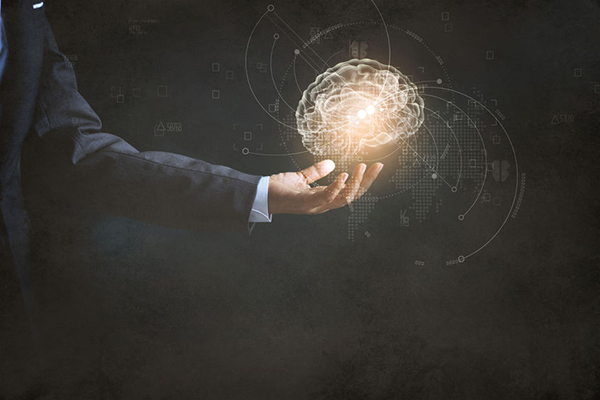
Laws Of Human Nature: We’re so wrapped up in ourselves that it takes an effort to think inside the mindset of the person that we’re dealing with and how they look at the world.
The way people smile, they’re fake smiles. How to differentiate a fake smile from a real smile? How to sense when people are smiling, but they resent you? There’s some underlying resentment there. It’s powerful, or how people, when you first walk up to them, their body language reveals whether they’re excited to see you or not. You’re missing all of that information. You’re walking around as if you had blinders on your eyes. What’s the point of being a social animal if you’re not observing? If you’re not seeing this language of nonverbal communication, you’re continually misreading people. You think that smile that they give me is they like your project or your idea, they like you but in fact, they don’t, and you’re missing that. It’s not that difficult to learn how to develop the skill.
The other element of it is that being self-absorbed is depressing. You’re always wrapped up in your own problems and it becomes a sinkhole that you go deeper and deeper into. Being able to observe people is like therapy. You get outside yourself, your little problems, world, obsessions, and you involve yourself more deeply with other people. You won’t feel as depressed as you were. Also, you’ll find that people are quite interesting. A lot of the reason that you’re not paying attention is you think that you are more interesting than other people. Your thoughts and desires are more important than others, but if you reverse this and you start becoming a better observer in life, a little light bulb will go on in your head and you’ll go, “That person who works at Starbucks and serves me coffee every day, they’re much more interesting than I think they are.”
They have an inner life, weirdness, dreams that are strange. They’re doing things on the side that are interesting. People are interesting. They’re like characters in a book or a movie and that’s how I want you to think about it. We go to movies because we were voyeurs and we get to go inside the lives of other people and go, “What is that person thinking that’s an interesting character? Is he a psycho killer or not?” We’re fascinated. Think of the people you deal with like characters in a movie. They might be a psycho killer for all you know, or they might not be but they’re interesting.
Getting outside yourself will make you a better person, feel happier, and will make your life easier. It will also contribute greatly to your creative skills because the ability to get outside of yourself and inside of other people loosens the mind up. You no longer have all of your preconceptions about, “This person is good. This person is bad.” You learn to relax and be in the moment and go, “I’m not going to judge this guy that I’m talking to. Instead, I’m going to listen.” It has an overall effect I talked about in Mastery. people who are socially aware are often more creative. They don’t have these rigid mental categories. I could go on and on, but the benefits of becoming a better observer in life are in new infinite.
I’d like to end with this last point, which you weren’t aware of. We’ve focused the show and guests and interviews and topics around the idea of entrepreneurship, as well as the environment of capitalism. The reason why I was adamant to have you on is that for me, at least, you have success and failure in business, as well as in society due to your understanding of relationships as far as what I have experienced. With what you’ve observed with the entrepreneur, startup, business world, and the success and failure there, how do you see your bookmaking an impact and those who either are in the process of running a business, starting a business, or bringing on partners? What do you see as the impact of your book on the success of ventures in general?
It should have a huge impact. I could go through the laws. Law number one should make you more aware of how emotions govern your decision so you can become more rational and make better decisions. The laws about how to judge people, how to judge their character, I have this chapter that will mean you won’t hire exactly the wrong person to partner with. You can’t believe how many times people hire the wrong person to be their partner and the misery that causes. This goes back to the Bible. It’s much ingrained in human nature. You will start making bad choices. I have an important chapter on grandiosity, and this is a problem that affects entrepreneurs. I know because I worked for one. I was on the board of directors of a publicly-traded company and the CEO was a classic entrepreneur who started from scratch. He’s charismatic and brilliant, but he wouldn’t listen to other people.
He thought he knew he had all the answers himself. He was a bit of a narcissist and it ended up that inability, that idea that your God, that you can do anything is what destroyed him. It’s a little bit of the complex than Elon Musk has. This chapter will make you realize that success is the worst thing that can happen to you in many ways. It makes you think you have the golden touch and makes you think that luck wasn’t involved, that other people didn’t help you, that you’re some God-figure that can snap your fingers and get whatever you want. It’s an illusion. It’ll help that way. I have a chapter on the authority. I maintained that humans respond to a certain primal type of authority figure. It almost goes back to chimpanzees. It’s rooted in who we are.
Nothing is good or bad. It’s human nature. Click To TweetI layout for you the paradigm for the 21st century of how we relate with authority figures and what we will consider a powerful person who has traits. This is a person who is empathetic, believe it or not, that cares deeply about the employees, that involve them creatively, that leads from the front, that leads by examples, not expecting people to do the work that he or she is not willing to do. That is the person that has a vision. Having a vision is essential to being a leader. You can have a vision like Elon Musk and not be able to execute it and that’s another problem. A lot of leaders in the world with quarterly reports and all the pressures we feel in the stock market are a pure, publicly-traded company that is only reacting to things that happen month by month.
A true leader, and what people want and desperately needed in a leader, is the ability to see 1, 2 years down the road, to have an overall vision for where the company is headed. I preach this over and over again to that entrepreneur that I talked to you about, “Where’s the company headed? What is a brand? This brand has to adapt because tastes have changed from a few years ago.” They never listened to me and then the ship went down. I’m not saying, “I would have saved this, the sinking ship, but it was a key element.” All the chapters are important, but another chapter deals with knowing the zeitgeist, knowing the spirit of the times so that your idea, your startup, think of the times that we live in.
It’s a way that’s cresting and then falling. A lot of people are riding that wave or they’re behind it a little bit, and then they fall back. You want to be ahead of that wave and where the times are. You want to be 5, 6 months to a year ahead of where people are going. That’s a genius level. That’s true vision. You create something like Steve Jobs created the iPod that revolutionizes the tech world, because you’re thinking 1, 2 years ahead down the line. I have a chapter on how to read the zeitgeist to understand the spirit of the times. I could go through all the chapters, but to an entrepreneur, that should be a big juicy steak for them.

Laws Of Human Nature: Building better relationships is essential to surviving in the world today and to be more successful in your career.
Robert, this has been incredible and thank you for your valuable time. I loved it. I can see how much you enjoy having these conversations. I want you to enjoy writing and talking about things that make a difference. I’m excited for our readers to read the book, but can you maybe give out ways in which they can also follow you to be aware of other things that you’re working on? If you’re active on social media, what’s the best way?
I have a website. It’s PowerSeductionAndWar.com. The titles of my first three books, 48 Laws, The Art of Seduction, Strategies of War are there. I have links to the book that I did with 50 Cent. I co-wrote a book with 50 Cent and to Mastery, my new book, and then to my Twitter and Instagram accounts. That’s probably the best resource. There’s also a link for if you need and want to try and email me as well.
Robert, thank you again for your time. I hope to talk to you some other time.
I would love to, Patrick, whenever you want to. I enjoyed it.
Thank you, Robert. Have a good one.
Important Links:
- Heads I Win, Tails You Lose: A Financial Strategy to Reignite the American Dream
- Audible – Heads I Win, Tails You Lose: A Financial Strategy to Reignite the American Dream
- Amazon – Heads I Win, Tails You Lose: A Financial Strategy to Reignite the American Dream
- Kindle – Heads I Win, Tails You Lose: A Financial Strategy to Reignite the American Dream
- The Laws of Human Nature
- Robert Greene
- Heads I Win, Tails You Lose: A Financial Strategy to Reignite the American Dream
- The 48 Laws of Power
- The Art of Seduction
- Mastery
- The 33 Strategies of War
- The 50th Law
- PowerSeductionAndWar.com
- Twitter – Robert Greene
- Instagram – Robert Greene
- Financial Independence
- Hierarchy of Wealth Calculator
About Robert Greene
 Robert Greene is the author of the New York Times bestsellers The 48 Laws of Power, The Art of Seduction, The 33 Strategies of War, The 50th Law, and Mastery.
Robert Greene is the author of the New York Times bestsellers The 48 Laws of Power, The Art of Seduction, The 33 Strategies of War, The 50th Law, and Mastery.
In his sixth book, The Laws of Human Nature, he turns to the most important subject of all – understanding people’s drives and motivations, even when they are unconscious of them themselves.
Love the show? Subscribe, rate, review, and share!


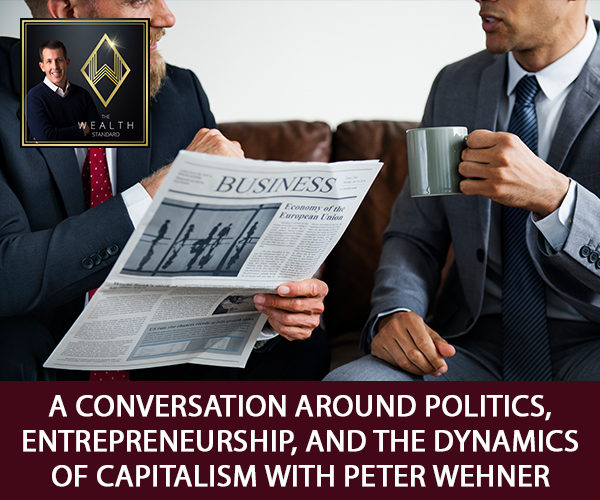
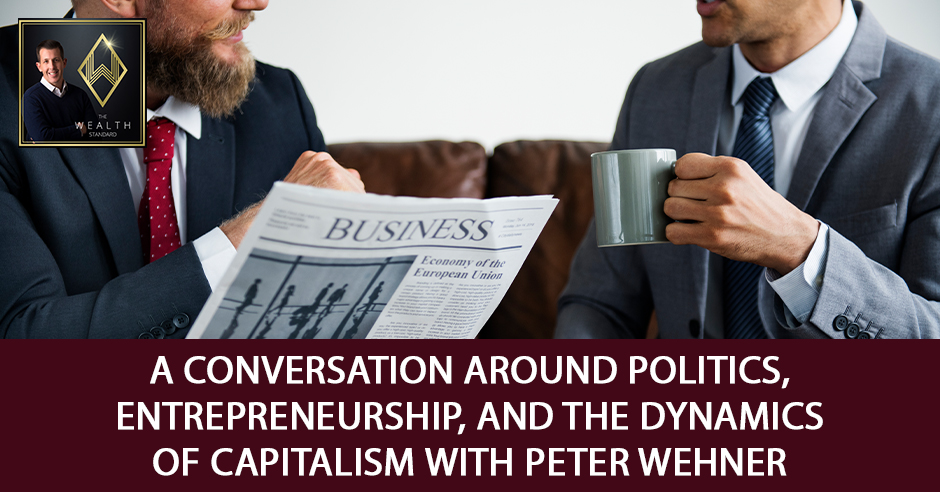



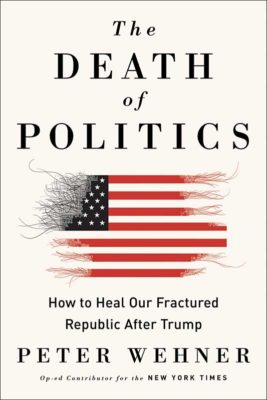
 Peter Wehner is the author of The Death of Politics. He is a New York Times contributing Op-Ed writer covering American politics and conservative thought and a popular media commentator on politics.
Peter Wehner is the author of The Death of Politics. He is a New York Times contributing Op-Ed writer covering American politics and conservative thought and a popular media commentator on politics.